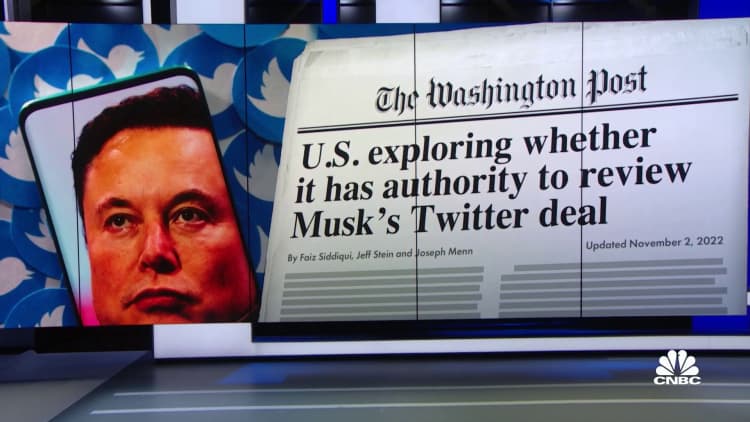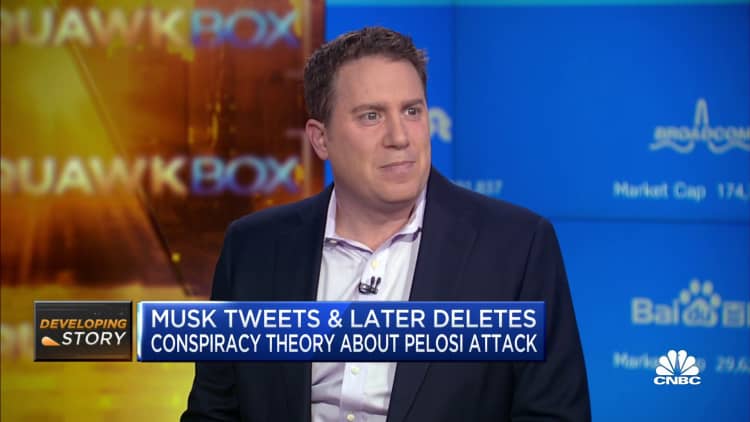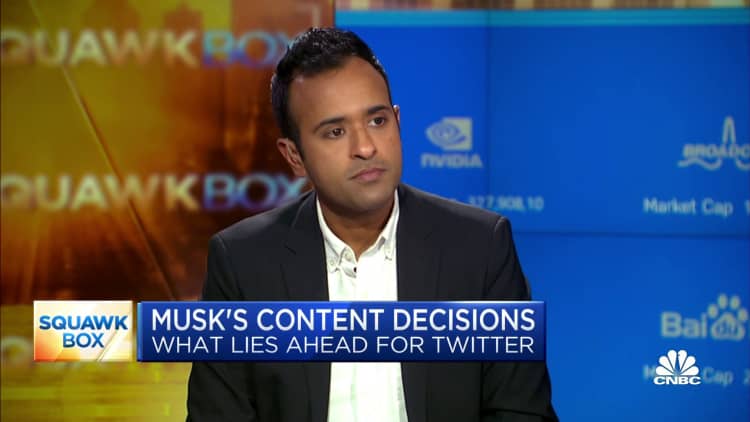After several celebrity and blue-check verified Twitter users changed their accounts to mimic the social network's new owner Elon Musk, he called for a swift change to policy enforcement.
Musk wrote on Sunday that, moving forward, Twitter will now permanently suspend impersonators' accounts without warning if they are not clearly labeled as parody.
In a series of tweets on Sunday, the Tesla, SpaceX and now Twitter CEO seemed to change his mind on permanent bans, and wrote:
"Going forward, any Twitter handles engaging in impersonation without clearly specifying "parody" will be permanently suspended
Previously, we issued a warning before suspension, but now that we are rolling out widespread verification, there will be no warning. This will be clearly identified as a condition for signing up to Twitter Blue.
Any name change at all will cause temporary loss of verified checkmark."
In May, after he agreed to buy Twitter, Musk argued against lifetime bans and said he would reverse one on Donald Trump. Twitter had banned the former president in the wake of the Jan. 6, 2021 insurrection at the U.S. Capitol, fearing Trump's tweets would incite further violence. Trump has said he would not return to Twitter.
Before Musk closed his $44 billion acquisition of Twitter on Oct. 28, the social network's rules specified that users, "may not impersonate individuals, groups, or organizations to mislead, confuse, or deceive others, nor use a fake identity in a manner that disrupts the experience of others on Twitter."
The company previously required that users engaged in parody should, "distinguish themselves in BOTH their account name and bio."
Twitter previously said it would take any of three actions in response to impersonators, including: "profile moderation," "temporary suspension," or a "permanent suspension." The platform would not usually jump to a permanent ban of a user's account for impersonation prior to Musk's takeover.
As of Sunday evening, Twitter had not yet updated its terms of service to reflect Musk's direction.

The decision of the "Chief Twit," as he has jokingly called himself, has stirred controversy and consternation, in part because Musk bills himself as a free speech absolutist.
Last week, he put down activists, including civil rights leaders who called on advertisers to stop spending on Twitter until Musk proves the company can deliver on its trust and safety promises under his leadership.
When Musk showed up at Twitter's San Francisco headquarters on Oct. 27, online trolls and bigots raided the social network, polluting it with a flood of racist epithets and other hate speech. Researchers said Twitter took appropriate action in response, but should have predicted and tried to prevent the raid.
Verification changes
After that gauntlet, Musk implemented steep headcount cuts at Twitter, laying off around 3,700 people from across departments including dismissals of content moderation, and other trust and safety experts. A major focus for him is a redesign of the platform's subscription product and verification system.
Verification, in the form of a blue-check, used to be reserved for public figures like politicians and celebrities who were very likely to be impersonated by bad actors. Now, Musk plans to make a verification mark available to anyone who pays $7.99 per month for Twitter Blue, a subscription product.
The verification changes inspired the outpouring of mockery and mimicry by those who think it will complicate, rather than help, Twitter users find good information and authentic accounts on the platform.

The account of one of the comedians who impersonated Musk over the weekend, Kathy Griffin, was suspended on Sunday. She changed her display name to Elon Musk and her profile pic to look like his, then wrote in a tweet, "After much spirited discussion with the females in my life, I've decided that voting blue for their choice is only right (They're also sexy females, btw.)"
The account of actor Rich Sommer, known for his role as Harry Crane on AMC's "Mad Men," was also suspended after he changed his display name and profile picture to impersonate Musk.
Pretending to speak as Musk on Twitter, Sommer quipped on Friday, "I'm in over my head. Can 44 billion of you send $1 each to twitter, attn me?" He later added, more searingly, "Ok, time to employ plan B since they're MAKING me keep Twitter. does anyone know any advertisers who are, like, kind of 'into' racism NOT ACTUAL RACISTS!! just ad ppl who are, y'know, curious about what it's all about (racism)."
Twitter and Elon Musk did not immediately respond to a request for comment or confirmation as to whether Sommer and Griffin were permanently banned.
Others who impersonated Musk included actress Valerie Bertinelli, who on Saturday changed her display name to Elon Musk, then posted tweets urging her followers to vote for Democratic candidates.

Sarah Silverman, the comedian, writer and host of "I Love You, America" also changed her display name and avatar photo to look like Elon Musk's. She then appeared to speak in Musk's voice, writing a juvenile crack, "I am a freedom of speech absolutist and I eat doody for breakfast every day."
Bertinelli changed her profile back before Twitter took any apparent actions against her account. She wrote on Sunday morning, "Okey-dokey I've had my fun and I think I made my point. I'm just not a 'trending' kind of gal. Never have been, never want to be. Have a safe Sunday everyone! xo"
Silverman remained on the platform, only reverting back to use her own photo and display name after her account was locked by Twitter. In a post to her 12 million listed fans and followers there on Sunday, Silverman wrote: "1) 9 days ago, 2) yesterday 3) today. We have fun," attaching three images.
One image referred back to a promise Musk made to his followers on Oct. 28, writing that "Comedy is now legal on Twitter," right after he had purchased the platform. The others showed her joke tweet, and that it had triggered a restriction.
Musk defended himself against critics who view his new enforcement directive as going against the free speech values he espouses on Sunday. He wrote, "My commitment to free speech extends even to not banning the account following my plane, even though that is a direct personal safety risk."
College student Jack Sweeney created a Twitter account using publicly available data that automatically updates to show the whereabouts of Musk's frequent flights in his private jet. Musk has pressured Sweeney and even offered to pay him to take the the flight tracker down, but it remains on Twitter even now.
On Sunday, after calling for bans of impersonators without a parody label, Musk also tried shift the focus away from free speech. He wrote, "Twitter needs to become by far the most accurate source of information about the world. That's our mission."


